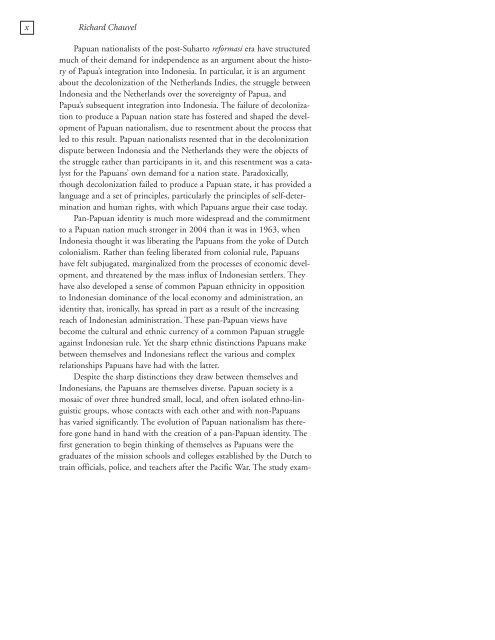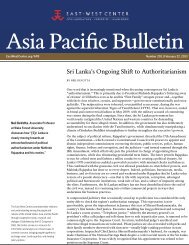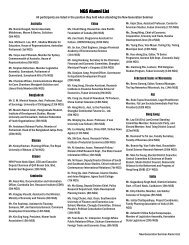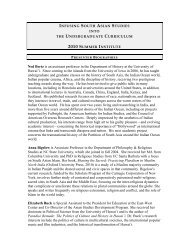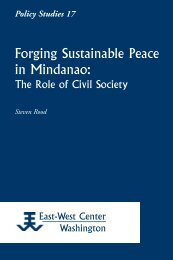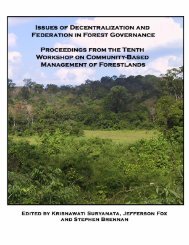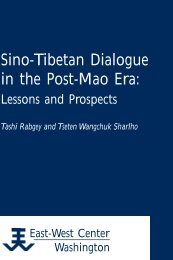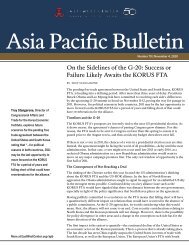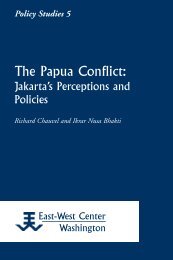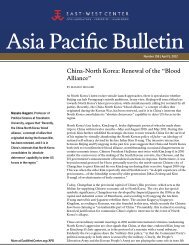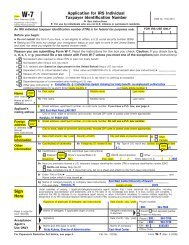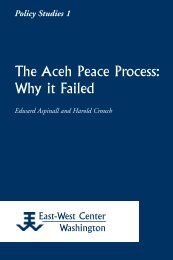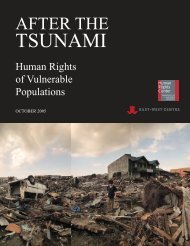Constructing Papuan Nationalism: History, Ethnicity ... - ScholarSpace
Constructing Papuan Nationalism: History, Ethnicity ... - ScholarSpace
Constructing Papuan Nationalism: History, Ethnicity ... - ScholarSpace
- No tags were found...
You also want an ePaper? Increase the reach of your titles
YUMPU automatically turns print PDFs into web optimized ePapers that Google loves.
xRichard Chauvel<strong>Papuan</strong> nationalists of the post-Suharto reformasi era have structuredmuch of their demand for independence as an argument about the historyof Papua’s integration into Indonesia. In particular, it is an argumentabout the decolonization of the Netherlands Indies, the struggle betweenIndonesia and the Netherlands over the sovereignty of Papua, andPapua’s subsequent integration into Indonesia. The failure of decolonizationto produce a <strong>Papuan</strong> nation state has fostered and shaped the developmentof <strong>Papuan</strong> nationalism, due to resentment about the process thatled to this result. <strong>Papuan</strong> nationalists resented that in the decolonizationdispute between Indonesia and the Netherlands they were the objects ofthe struggle rather than participants in it, and this resentment was a catalystfor the <strong>Papuan</strong>s’ own demand for a nation state. Paradoxically,though decolonization failed to produce a <strong>Papuan</strong> state, it has provided alanguage and a set of principles, particularly the principles of self-determinationand human rights, with which <strong>Papuan</strong>s argue their case today.Pan-<strong>Papuan</strong> identity is much more widespread and the commitmentto a <strong>Papuan</strong> nation much stronger in 2004 than it was in 1963, whenIndonesia thought it was liberating the <strong>Papuan</strong>s from the yoke of Dutchcolonialism. Rather than feeling liberated from colonial rule, <strong>Papuan</strong>shave felt subjugated, marginalized from the processes of economic development,and threatened by the mass influx of Indonesian settlers. Theyhave also developed a sense of common <strong>Papuan</strong> ethnicity in oppositionto Indonesian dominance of the local economy and administration, anidentity that, ironically, has spread in part as a result of the increasingreach of Indonesian administration. These pan-<strong>Papuan</strong> views havebecome the cultural and ethnic currency of a common <strong>Papuan</strong> struggleagainst Indonesian rule. Yet the sharp ethnic distinctions <strong>Papuan</strong>s makebetween themselves and Indonesians reflect the various and complexrelationships <strong>Papuan</strong>s have had with the latter.Despite the sharp distinctions they draw between themselves andIndonesians, the <strong>Papuan</strong>s are themselves diverse. <strong>Papuan</strong> society is amosaic of over three hundred small, local, and often isolated ethno-linguisticgroups, whose contacts with each other and with non-<strong>Papuan</strong>shas varied significantly. The evolution of <strong>Papuan</strong> nationalism has thereforegone hand in hand with the creation of a pan-<strong>Papuan</strong> identity. Thefirst generation to begin thinking of themselves as <strong>Papuan</strong>s were thegraduates of the mission schools and colleges established by the Dutch totrain officials, police, and teachers after the Pacific War. The study exam-


